Book Launch: Impact of Social Media on Political Polarization Pakistan
ISLAMABAD: Federal Minister Ata Tarar, in his exclusive remarks at the book launch, said that quality of content and editorial oversight have weakened as a result of social media revolution that jettisoned the print media’s strengths like fact check, responsibility and journalistic gravitas. He, however, said that all political parties are responsible for the irresponsible use of social media.
We need to come up with a system where we actually focus on social issues and populate digital media forums with social issues so our society is made aware and can benefit from these platforms.
During this war( Indo-Pak War), I did not know how the digital natives would respond. But our GenZ was waging a meme war against the enemy, the way they handled the enemy propaganda and displayed the utmost sense of Pakistaniyat. When it comes to Pakistan, irrespective of political polarization, we united in the digital space in the face of enemy.
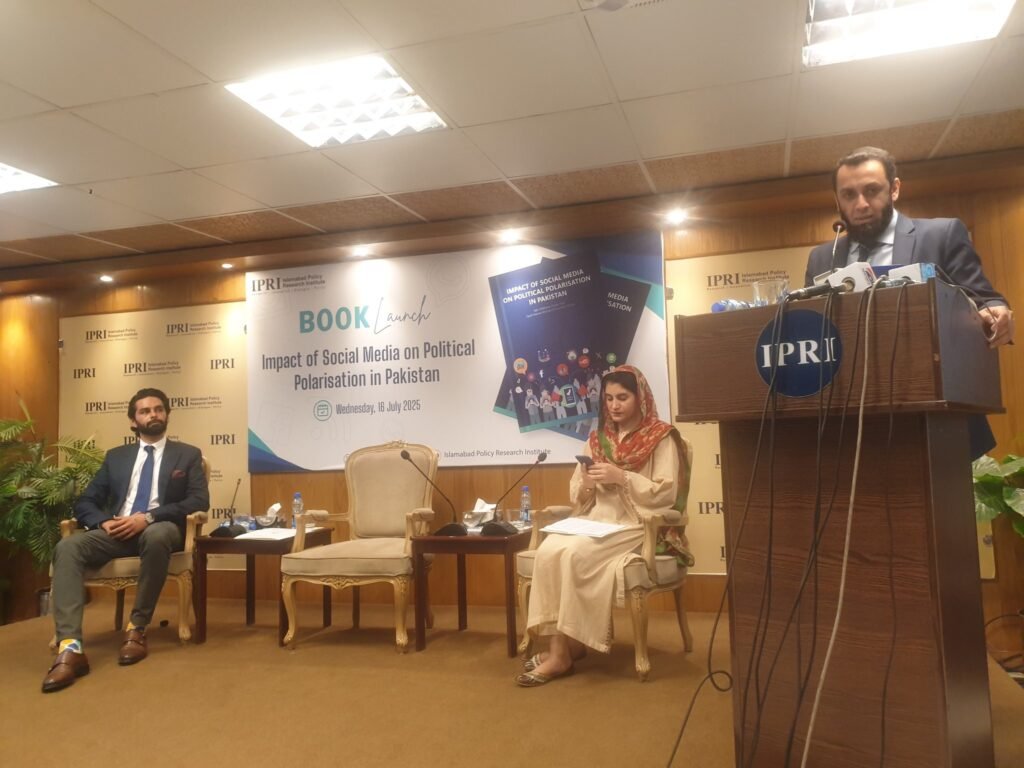
Our young generation used the platforms so well, and won the digital war.
Islamabad Policy Research Institute (IPRI) launched a research study, titled “Social Media Impact on Political Polarization in Pakistan”, and was addressed by Federal Minister for Information Ata Tarar.
The book is a sustained and well-research study encompassing qualitative and quantitative input from all the stakeholders of the society, and includes datafication too. The prescriptive part of the research focused on: Digital Literacy, Social Media Accountability, Design Changes in Social Media Platforms to promote dialogue instead of conflict, Fact Check Mechanisms, Strong Libel Laws, and last but least Indigenous SM Platform.
The speakers underscored that the onus is on leaders across disciplines like politicians, religious leaders, government entities, and individuals to ensure secure use of social media. It was also noted that social media does not create polarization, rather it shapes and amplifies it.
“It gives a stage from which belief can gain momentum, whether in goodwill or hostility. Whether it is a view that tolerates dissent, or one prepared to defend itself, be it through words, or unfortunate instances, through weapons,” the audience was informed.
The research proves that from 2017 to 2025, the number of social media users in Pakistan grew from 31 million to 66.9 million, providing a broad base for analysing the political impact of these platforms.
The study calls for urgent and coordinated efforts from policymakers, political parties, civil society, and media platforms to mitigate these effects. It recommends introducing digital literacy into educational curricula, holding social media companies accountable for harmful content, moderating online discourse, promoting fact-checking initiatives, and exploring indigenous digital platforms to reduce reliance on foreign-owned networks.
To mitigate social media’s polarizing effects, the study recommends enhancing digital media literacy, regulating the spread of misinformation, promoting inclusive discourse, and encouraging critical engagement with content to disrupt echo chambers.
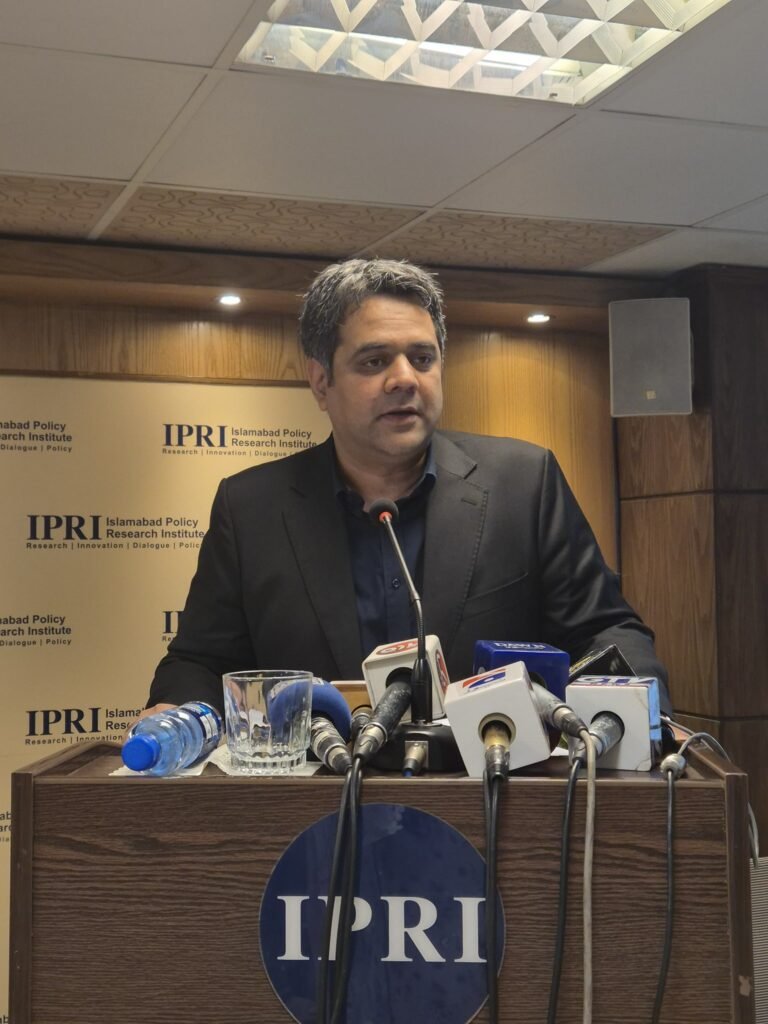
“It gives a stage from which belief can gain momentum, whether in goodwill or hostility. Whether it is a view that tolerates dissent, or one prepared to defend itself, be it through words, or unfortunate instances, through weapons,” observed Siddique Humayun, Director Advocacy & Communications IPRI.
Earlier, President IPRI Lt Gen (retd) Majid Ehsan elucidated on the growing role of social media in shaping political attitudes, behaviours, and divisions in the country. He said that the study situates itself in the context of Pakistan’s rapidly expanding digital landscape, where platforms like X, Facebook, TikTok, WhatsApp, YouTube, and Instagram have become central to how people receive, discuss, and contest political ideas.
He pointed out that the research explores how social media interacts with partisan identities, how it enables both engagement and exclusion, and what this means for political polarisation in Pakistan.
Director Research Brig (retd) Dr Raashid Wali Janjua, who spearheaded the research, quoted Jonathan Haidt from US Surgeon General’s report, saying that after the “introduction of like and share buttons on Facebook and Instagram between 2009-2012, the suicide rates in Generation Z went up by 62% and amongst girls 180% with female drug use rising up to 112%.”
Similarly, the Twitter (now X) became a nastier place after introduction of share button. The design features meant to promote platform engagement encouraged factionalism in academic as well as political spaces.
Sohail Majeed is a Special Correspondent at The Diplomatic Insight. He has twelve plus years of experience in journalism & reporting. He covers International Affairs, Diplomacy, UN, Sports, Climate Change, Economy, Technology, and Health.


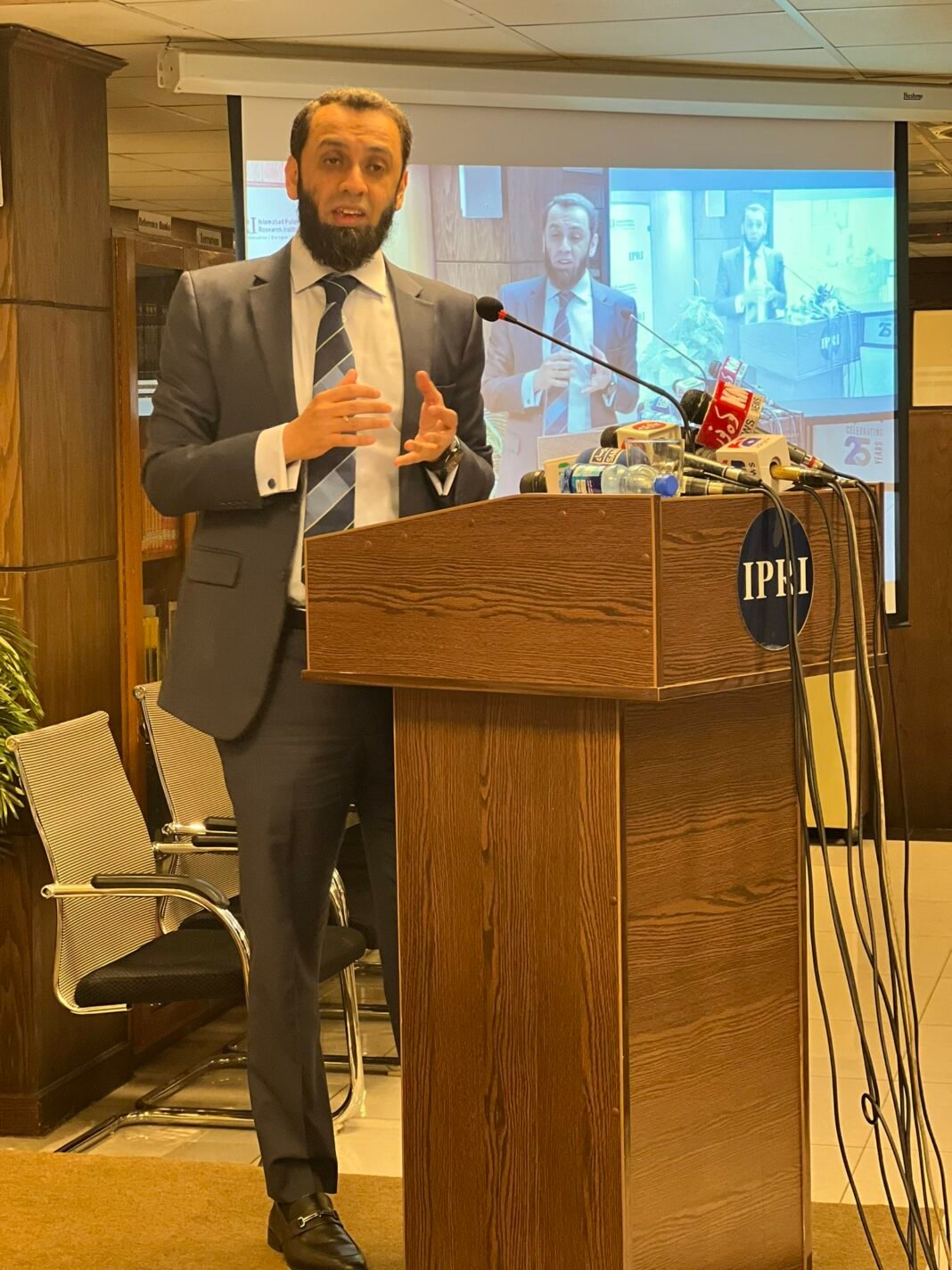

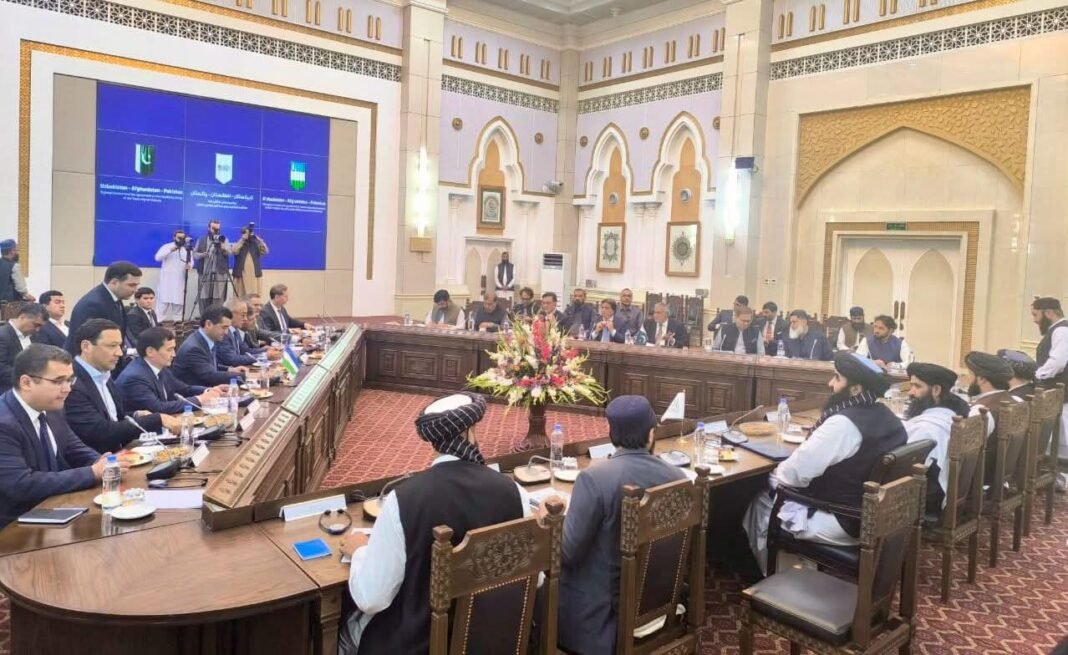
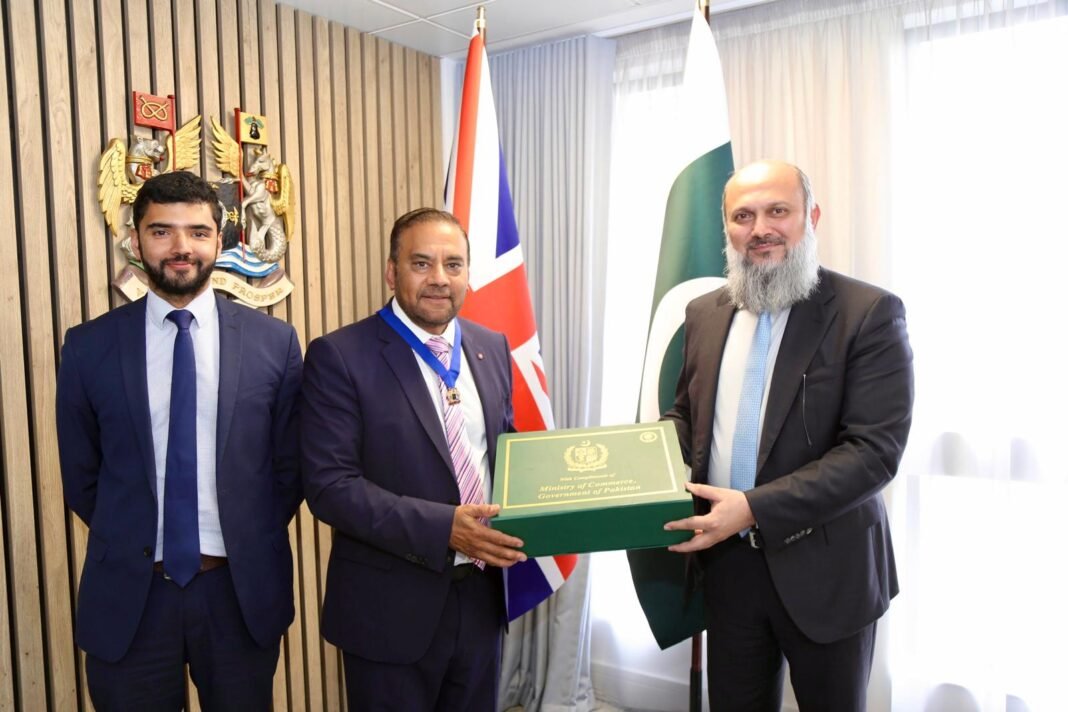
![logo-1[1]](https://globalnewspakistan.com/wp-content/uploads/2025/01/logo-11-e1737618310315-300x187.png)